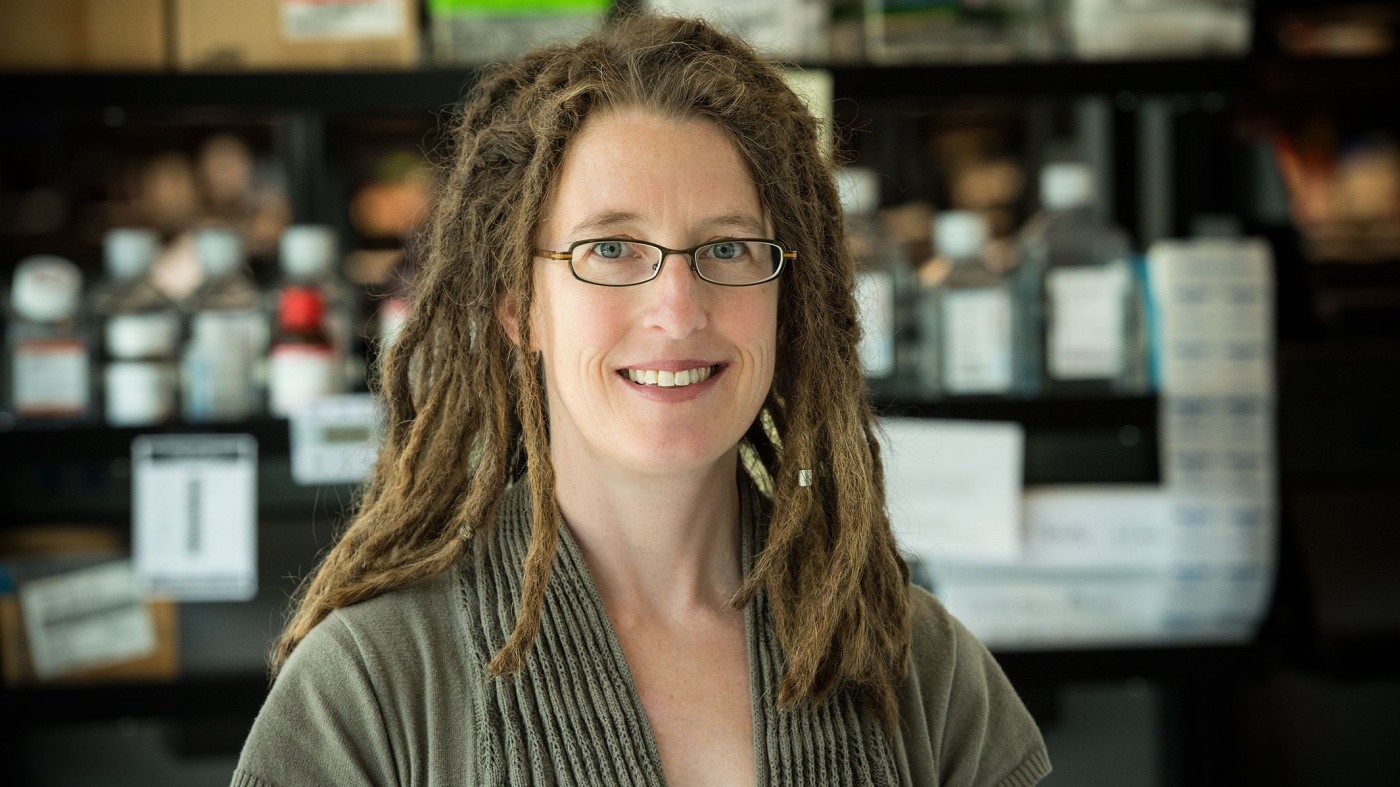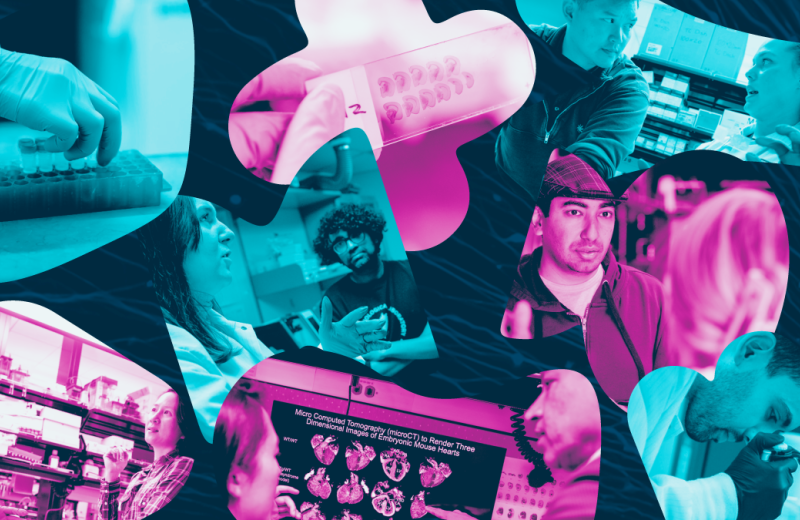Gladstone NOW: The Campaign Join Us on the Journey✕

Katherine Pollard, PhD, developed a new tool to examine genetic differences within bacterial species, uncovering novel patterns in the microbiomes not previously identifiable. [Photo: Chris Goodfellow, Gladstone Institutes]
Direct microbial sequencing of environmental samples, such as from ocean water, hospital surfaces, and the human gut, have illuminated the vast number of microbes present in our world. However, a microbial species can be genetically diverse, and this variability is often not captured during metagenomic analysis. In a study published online today in Genome Research, scientists developed a new tool to examine genetic differences within bacterial species and uncover novel transmission patterns in mother-infant microbiomes and marine metagenomes not previously appreciated by species-level analyses.
Within a given bacterial species, gene content can vary by 50% or more from the reference genome. "This suggests massive variability at the strain level that could have real functional consequences," said senior author Katherine Pollard, PhD, from the Gladstone Institutes and the University of California, San Francisco (UCSF). "We saw a need for a computationally efficient tool to quantify this variation from shotgun metagenomics data."
The researchers developed the tool, MIDAS, for rapidly profiling differences in gene content and single nucleotide variants across bacterial strains. To build MIDAS, researchers first generated a database of 31,007 high-quality bacterial genomes. Using a set of 30 informative "universal" genes, they hierarchically clustered the genomes to define species. The researchers were able to assign 8.6% of the previously unannotated genomes to a species, and reassigned species for 9.8%.
Applying MIDAS to 98 mother and infant stool metagenomes, the researchers used strain-level genetic differences to track bacteria between mothers and infants. "Strain-level variants reveal patterns that contradict what one would assume from patterns at the species level," said first author Stephen Nayfach, a graduate student at UCSF. Previous studies suggested that mother and infant microbiomes become more similar over the first year of life. However, by examining "marker alleles," or rare genetic differences, the researchers found that early colonizing strains are transferred from the mother, but that late colonizing strains are different and likely are acquired from the environment. "The maturation of the infant gut microbiome over the first year gives the impression of ongoing transmissions from the mother," said Pollard. "But the genetic variants in the bacteria show that the acquired strains are often not the same as the mother's."
The researchers also applied MIDAS to marine samples collected at varying depths across the world's oceans. Most prevalent marine bacteria had differences in gene content that were strongly associated with geography. Additional work will be needed to distinguish whether genetic differences between locations are the result of adaptation or genetic drift within the species. "The next big challenge is to disentangle the forces that drive population structure in the microbiome and to associate this variability with traits of the host or environment," Pollard said.
Researchers from Gladstone and UCSF contributed to this work. The study was funded by the National Science Foundation, the Gordon & Betty Moore Foundation, the San Simeon Fund, and the Gladstone Institutes.
Want to Join the Team?
Our people are our most important asset. We offer a wide array of career opportunities both in our administrative offices and in our labs.
Explore CareersHow AI Is Accelerating Life-Saving Discovery
How AI Is Accelerating Life-Saving Discovery
Gladstone scientists are developing new AI tools that promise to revolutionize how science is done and lead to new treatments for the most devastating diseases.
AI Srivastava Lab Pollard Lab Engelhardt Lab Theodoris Lab Shipman Lab Ramani Lab Finkbeiner Lab Cardiovascular Disease Neurological DiseaseGladstone’s Scientific Highlights of 2025
Gladstone’s Scientific Highlights of 2025
From fundamental insights to translational advances, here’s how Gladstone researchers moved science forward in 2025.
Gladstone Experts Alzheimer’s Disease Autoimmune Diseases COVID-19 Neurological Disease Genomic Immunology Cardiovascular Disease Data Science and Biotechnology Infectious Disease Conklin LabSix Gladstone Scientists Named Among World’s Most Highly Cited Researchers
Six Gladstone Scientists Named Among World’s Most Highly Cited Researchers
The featured scientists include global leaders in gene editing, data science, and immunology.
Awards News Release Corces Lab Doudna Lab Marson Lab Pollard Lab Ye Lab




